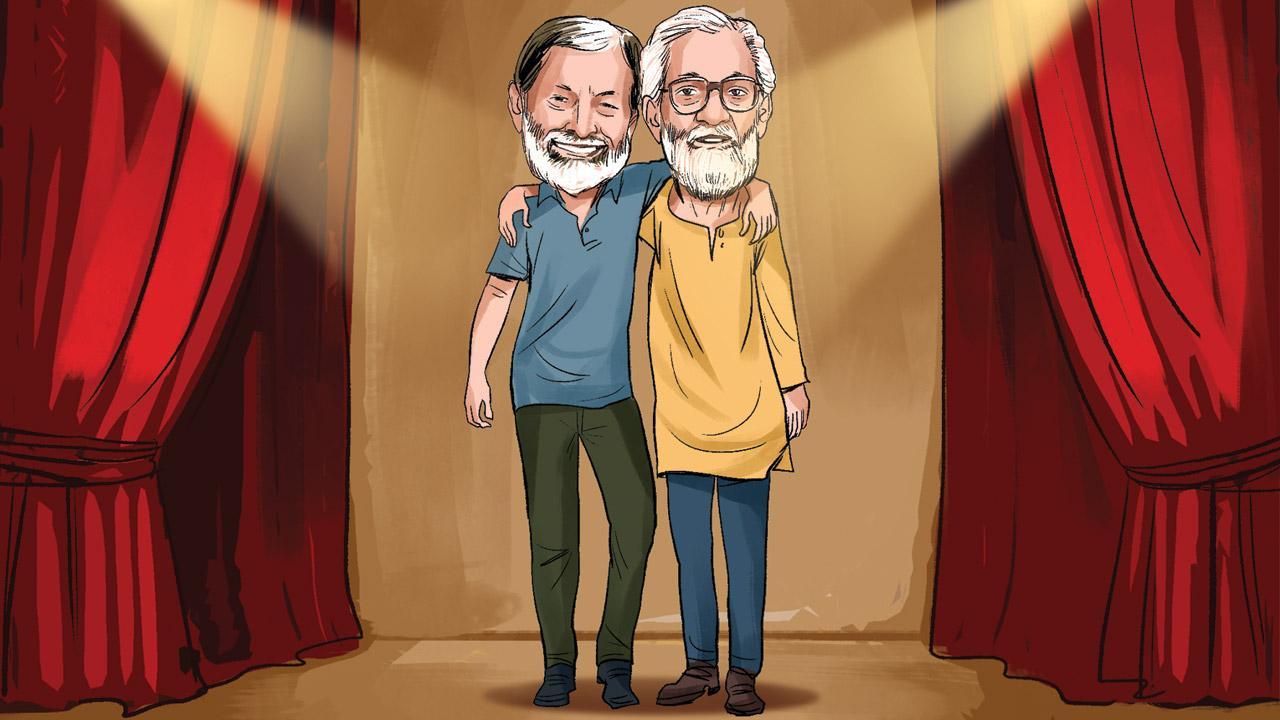Gerson’s hallmark was as Eastwood said “staying mentally and physically sharp.”

Illustration/Uday Mohite
 Clint Eastwood was once asked what it felt like to be 91. He answered, “I don’t feel 91, because I don’t know what 91 is supposed to feel like.”
Clint Eastwood was once asked what it felt like to be 91. He answered, “I don’t feel 91, because I don’t know what 91 is supposed to feel like.”
ADVERTISEMENT
When queried about how he was so prolific at 91, (having directed nine films since 2010), he said: “I just get up every morning and go to work—I don’t let the old man in.”
Gerson da Cunha, never felt 92 and he never let the old man in. Even on the morning of his untimely passing, he was heading to a meeting, no doubt to rebuild some aspect of Mumbai’s crumbling edifice—like Eastwood, he got up every morning and went to work.
Gerson’s hallmark was as Eastwood said “staying mentally and physically sharp.”
My uncle’s passions were many, and in our world, in the world of the da Cunha family, and its significant alter-ego, its doppelganger—my mother’s family—passions rarely stayed pastimes, they translated into side professions, or at the very least serious hobbies. Often these professions weren’t financially viable, but occupied huge amounts of mind space because of the possibilities of social change or creative expression. Advertising, theatre, acting, journalism, poetry, film, painting, writing above all else, all made their way into this vast creative playground.
It is a heady family to be a part of, because creative excellence is always kindled, intimacy often expressed through intellect, and arguments are mostly about art. Many members of my family, met for the first time in the theatre and advertising, and marriage followed.
Growing up in the ’80s, the art balancing of multi interests was par for the course for me, a tradition ingrained in the da Cunha DNA.
My creative partner Bugs Bhargava Krishna and myself, the second generation, who followed this path, often discuss how these two professions are connected. What made Gerson and Sylvester da Cunha and Alyque Padamsee, in the ’60s, and later Bugs and me in the ’80s venture into this ‘double act’, later off-shooting into allied fields. Was theatre our evening job, or was it serious self-expression? Did one feed off the other?
For me, I’ve felt both strive to entertain, whether it’s creating brands, or changing consumer behaviour. David Ogilvy once famously said, ”The best ideas come as jokes.”
I cannot explain Gerson’s life in singularity—it’s tied into that of his casting director wife, my aunt Uma, his younger brother-in arms, my dad Sylvester, my mother, Nisha (his sister-in-law, and best friend), who till last week, discussed Shakespeare and the shoddy state of the country every evening with him.
This is also where I need to introduce my other uncle, my premier mentor, the late Kersey Katrak, ad man-playwright-poet and my mother’s eldest sister’s husband, who first saw in me the potential to do stuff.
Fascinating that both these men, who first met in the ’50s should have such similar career paths—Gerson led Lintas, and Kersey created MCM, the powerhouse ad agency of the ’70s. That both should also be such skilful poets. I was blessed to have two uncles, two mentors, within a family, Kersy Katrak and Gerson daCunha.
These two men wished me well, they watched my career closely. Kersey gave me my first and second jobs, allied me with my long time art partner Prashant Godbole, and taught me vital lessons, “polish every word till it shines”, “always write as if it’s to one person” and “create without compromise or don’t create at all”. Gerson came at me from another angle, his first question to me was always, “Dear nephew, what are you busy with?” or “What are you writing now?”—in his tone there was always a sense of “Dream it, do it… because you can”.
Sure, Gerson da Cunha had the bigness, the presence to walk into a room, and give the impression of a 6 foot 2 frame, inspite of standing 5 foot 10, but his approach was personal, he worked for change in the smallest way. When he talked to you, it was a tiny cocoon he created, a bubble where all that mattered was you.
Gerson followed one principle: “Have we lived a full enough life… have we maximised every moment?” Regrets were unacceptable, retirement was off the table, but critically, never let the old man in.
Rahul daCunha is an adman, theatre director/playwright, photographer and traveller. Reach him at [email protected]
 Subscribe today by clicking the link and stay updated with the latest news!" Click here!
Subscribe today by clicking the link and stay updated with the latest news!" Click here!







